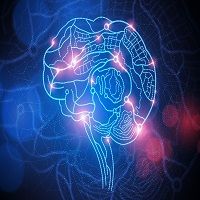Article
Having No Friends Is Painful, Literally
Author(s):
It turns out that your social network has more to do with just the likelihood of having plans on a Friday night. People with fewer friends have a lower pain tolerance, according to new research from Oxford University in England.

It turns out that your social network has more to do with just the likelihood of having plans on a Friday night. People with fewer friends have a lower pain tolerance, according to new research from Oxford University in England.
Endorphins play a role in both pain and pleasure, and previous studies have indicated that social relationships are important when it comes to these natural painkillers. One explanation for this was dubbed the “brain opioid theory of social attachment.” It’s believed that when we see our friends, endorphins bind to the opioid receptors in our brains — which is why we feel good when we see them. Researchers at Oxford decided to dive deeper into this theory and examined the opioid receptors in the central nervous system.
“To test this theory, we relied on the fact that endorphin has a powerful pain-killing effect — stronger even than morphine,” Katerina Johnson, DPhil student at the University’s Departments of Psychiatry and Experimental Psychology, said in a news release.
- MD Magazine is on Facebook, Twitter, Instagram, and LinkedIn!
A total of 107 participants — consisting of mostly females with an age range of 18 to 34 – filled out social network questionnaires. Their pain tolerance levels were gathered using a wall sit test analysis. The researchers took those levels as an indicator of endorphin activity in the brain.
Published in Scientific Reports, the results were consistent with those found in previous studies indicating that social encounters signal opioid receptors. The people who were able to endure the pain from the wall sit test longer — with their legs at a 90° angle with their back straight – had more friends. This correlation stood true even when adjusted for fitness levels.
“These results are also interesting because recent research suggests that the endorphin system may be disrupted in psychological disorders such as depression,” Johnson continued. “This may be part of the reason why depressed people often suffer from a lack of pleasure and become socially withdrawn.”
Another conclusion drawn from the data determined that people who are more fit and more stressed have smaller social networks. This may just be a matter of time and these people use their time to exercise instead of seeing friends, Johnson explained. However, this sheds light on a potentially bigger issue of human interaction (or lack thereof) in a digital world.
Also on MD Magazine >>> Sleep Problems in Young Adults Predict Pain Later On




